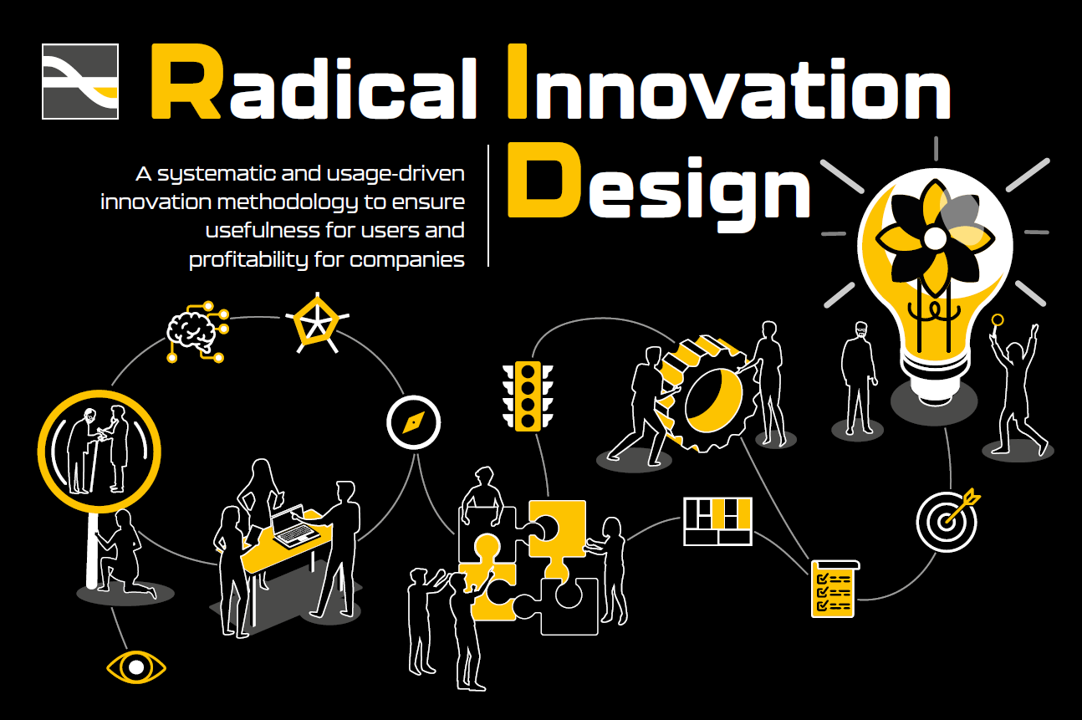
An innovative, comprehensive, structured and traceable methodology of innovative design
Radical Innovation Design (RID) is an innovative, comprehensive, structured and traceable methodology of innovative design that brings Design Thinking up to date. Deliberately focused on modelling usage situations and the user experience, it attaches great importance to problem setting. A cognitive model of the target activity is built to capture the effectiveness of current market solutions on the problems encountered by the different user categories in everyday situations. From this, algorithms determine the most relevant value buckets from which to ideate. These are the ones that create the most usefulness in terms of usage, for which the solutions on the market are the least effective, and which correspond to the company’s strategy.
RID enables systematic, usage-driven innovation to guarantee usefulness for users and profitability for companies, which are encouraged to move into areas where there is no competition. RID differs fundamentally from methods based on the "fail fast" principle, by proposing a single process ensuring traceability of reasoning with a total of seven original methods, adapted algorithms and vizualisation tools, a metric of "quantities of pain" and two decision-support indicators (effectiveness and value buckets). RID is the first computerized methodology to implement and secure usage-driven innovation processes, and is particularly well suited to cases where usages are complex or diffuse. It has been applied and validated in multiple industrial and commercial sectors.
Radical Innovation Design® is a trademark of CentraleSupélec. He has been created by Pr. Bernard Yannou. The methodology is developed at the Industrial Engineering Research Department (Laboratoire Génie Industriel, LGI) of CentraleSupélec, Université Paris-Saclay.
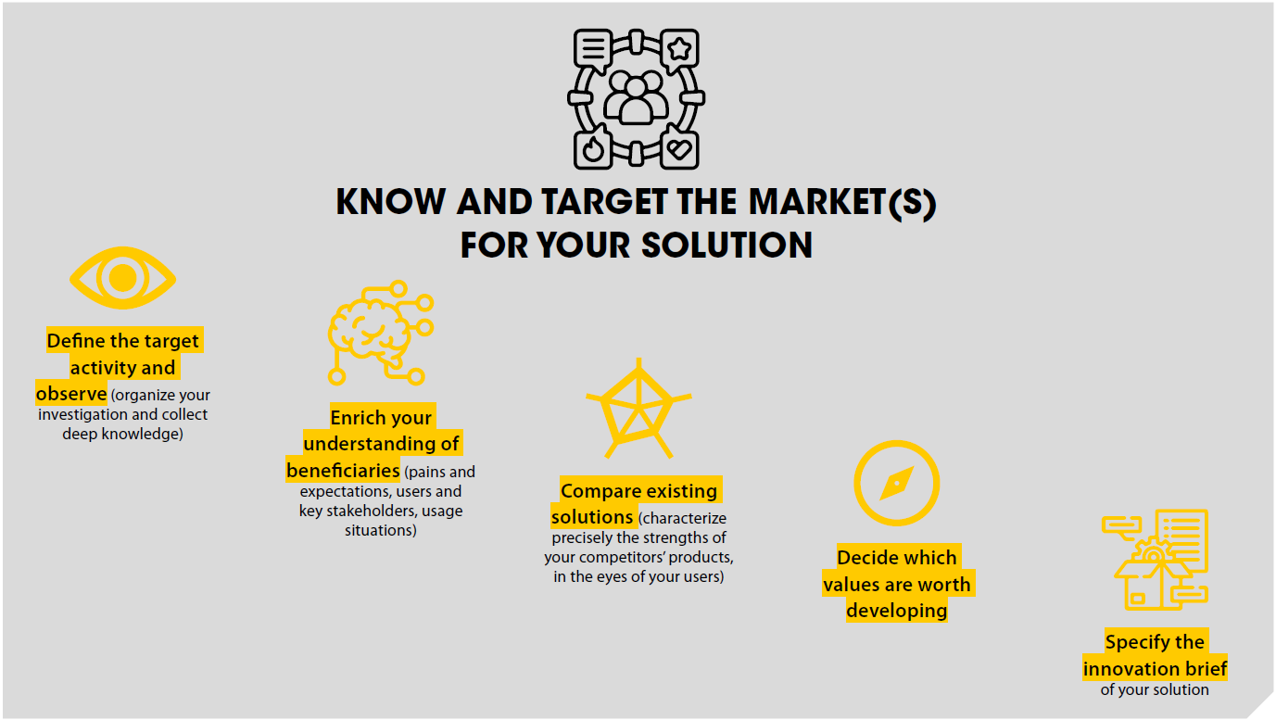
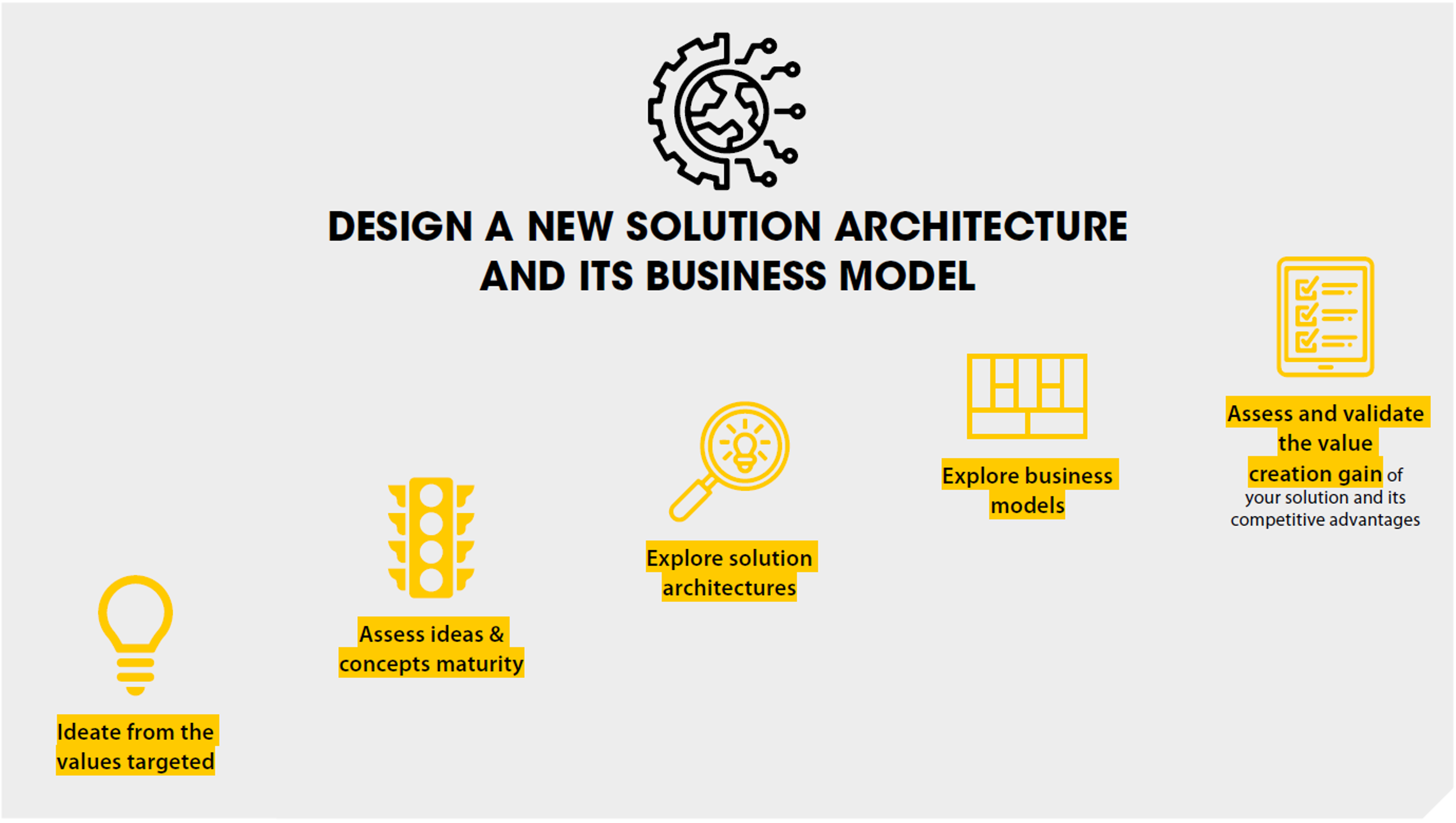
Radical Innovation Design in brief
Radical Innovation Design is a novel, complete and well-structured innovative design methodology that prioritizes the improvement of the user experience within a context of activity. RID considers innovative design as the improvement of the activity-support-system to augment the performances of a future activity. Indeed, in Engeström’s Activity System Diagram theory, the designed solution that serves for supporting an activity is called a mediating artefact which corresponds to a Product- Service-Organisation in RID.
RID guides innovators who want to systematically explore users’ problems and unstated needs, and evaluating which ones are most pressing in terms of innovation, taking into account the effectiveness of existing solutions in contributing to a satisfactory practice of activity. RID renews the way to define innovation targets along with a prioritized set of value buckets in adequacy with company strategy. Value buckets, which are frequent usage situations where major problems are experienced and for
which the existing solutions provide little or no relief, are qualified questions for usefully start ideation sessions with the guarantee that, if value buckets are cracked, then unaddressed usefulness value is created for users. With its emphasis on problem exploration, RID differs from methods based on early prototyping. The RID methodology has been validated in various industrial and business sectors.
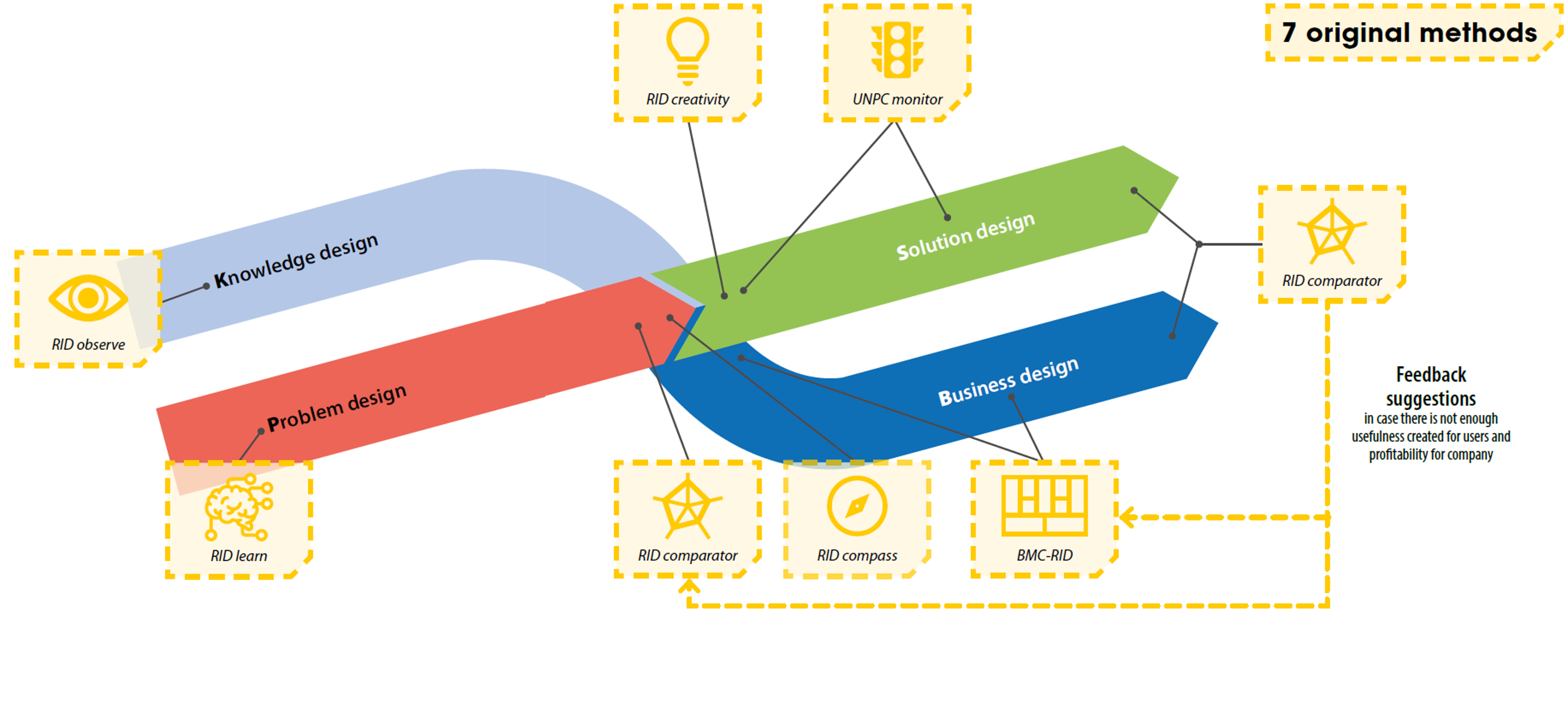
Discover the Radical Innovation Design eBook in open access!
Would you like to revisit some preconceived ideas on how to lead innovation processes? In a data-rich world, data analytics should reveal essential challenges to innovation and model the effectiveness of potential solutions. A robust innovation methodology should refer to leading market solutions, constructing its innovation brief upon a comprehensive user experience analysis. To determine how well solutions satisfy a range of user needs, more sophisticated methods are required to qualify user experience and quantify its expected benefits and notable shortcomings. Once we have pinpointed the pertinent problems, assistance in organizing ideation processes would be beneficial, fostering the development of promising concepts and business models, as well as swiftly appraising the practical efficacy of innovative solutions. There should ultimately be an openness to automating, to some degree, the articulation of pertinent issues and the curation of the most useful and profitable solutions.
Whether you share these convictions or are simply intrigued about innovation, this eBook is for you, as it shows how to innovate in an organized, modern way using the Radical Innovation Design® (RID) methodology. RID, a revolutionary computerized approach to knowledge- and usage-driven innovation, excels at the in-depth exploration and exploitation of problems and solutions and has proven its effectiveness in a wide range of industries. Aimed at professionals new to innovation, students and innovation experts alike, it offers three customized journeys to explore original concepts using practical illustrations and real-life projects. The authors are both design and innovation engineering faculties at CentraleSupélec, Université Paris-Saclay, and have extensive teaching experience. With a long list of industrial design and innovation books to their credit, they have supervised numerous doctoral theses in industrial environments. This e-book and related downloadable material are open-access to disseminate RID-based practices.
You may browse the eBook below, or downolad it:You may also download all complentary materials in our resources section. |
Research about RID
RID has been invented in the 2000's by Pr. Bernard Yannou. Since then, multiple research projects and PhD theses have contributed to the evolution of the methodology. All scientific publications about RID are available on this website.
Interested to know more about our research? Please contact us!
Applying RID in practice
RID has been applied in all economic sectors. By design, RID is particularly well suited to the BtoC (Business to Customer) sector, but it has quickly spread to the BtoB and BtoBtoC sectors, since there are a variety of non-trivial usage contexts, and it is necessary to study the suitability - or coverage - of an offer for these contexts in a competitive situation, or even when no offer exists.
RID does not presume the nature of the resulting value proposition. Whether the result is more of a product, a service or even an organization, the study is conducted in the same way, as long as the resulting solution makes it possible to improve the targeted activity.
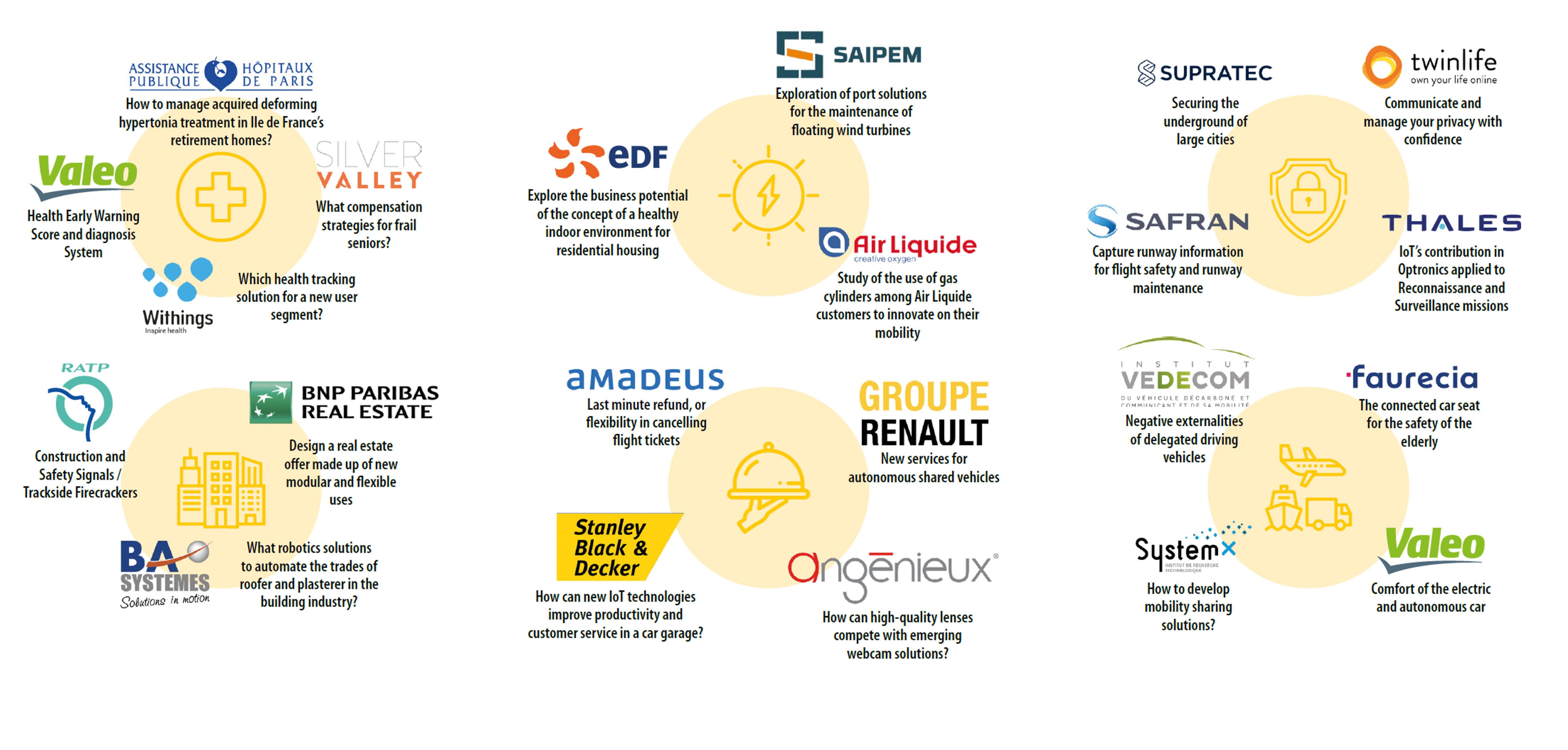
RID training & certification levels
RID is taught in the engineering curriculum at CentraleSupélec. Trainings and certification levels are also open to professionals.
There are four levels of certified training. These certifications are issued by CentraleSupélec, a major teaching and research establishment and owner of
Radical Innovation Design methodology. Choose your training formula:
- If you’re looking for traditional, inter-company training, contact CentraleSupélec Executive Education, the professional continuing education centre for managers.
- If you would like training tailored to your company, your sector of activity or your project, contact HyB’RID company.
The RID serious game: a flexible progression towards RID expertise
Set the scene for mobility users in the Ile-de-France region, their daily usages and the dissatisfactions they experience depending on the means of transport used or available. The game script immerses learners in the complexity of contextualizing usage, which is a prerequisite for producing usefulness.
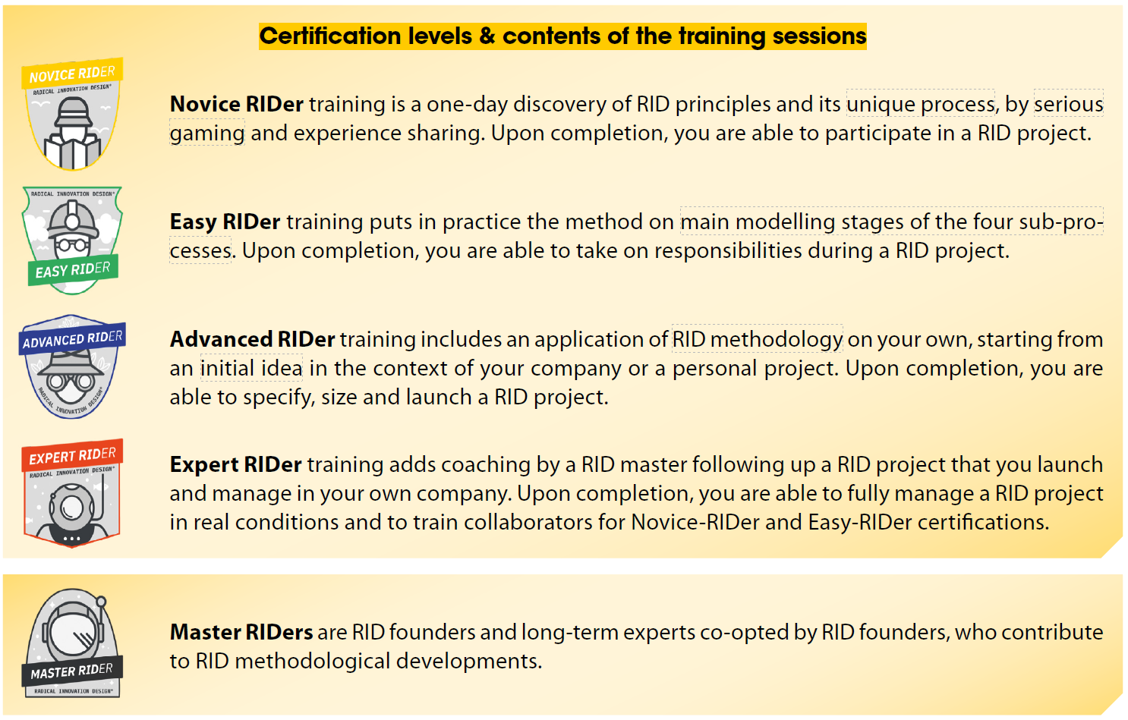
HyB'RID company
CentraleSupélec lets commercial exploitation rights to HyB’RID startup company. If you want to apply RID in your company, please contact HyB'RID.

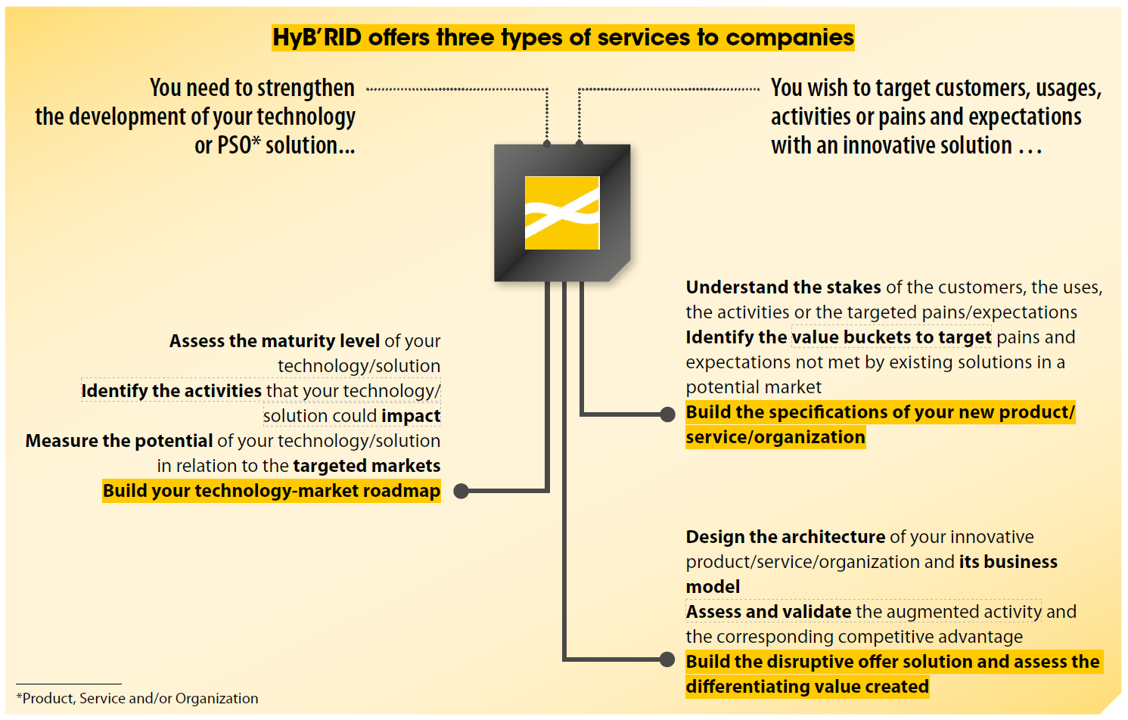
Contacts

Bernard Yannou
Full professor
Director of the Industrial Engineering Research Departement
Deputy director of research at CentraleSupélec, in charge of deeptech entrepreneurship
CentraleSupélec, Université Paris-Saclay
E-mail: bernard.yannou@centralesupelec.fr
My motto "To make myself useful through the proposal of innovative design methods that enable us to invent desirable new worlds."
Find me online:
François Cluzel
Assistant professor
Head of the Design Engineering Research Group
Industrial Engineering Research Department
CentraleSupélec, Université Paris-Saclay
E-mail: francois.cluzel@centralesupelec.fr
My motto "To assist people designing engineered artefacts for human activities by maximizing usefulness and sustainability!"
Find me online:
